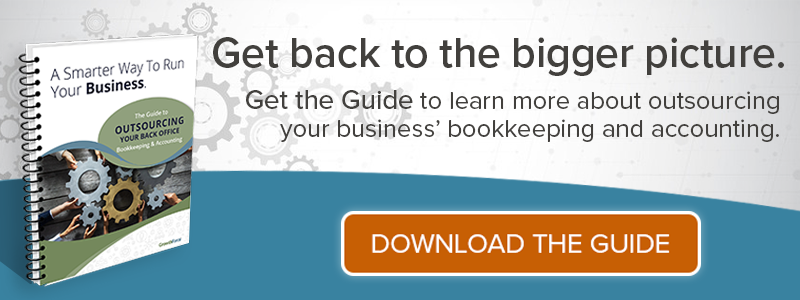
Accounts payable isn't something CEO's or business owners love to think about. But ignorance of proper management or re-evaluation of the accounts payable processes, can negatively impact business operations and controls, and result in increased transaction expenses for the business.
In addition, timing is a critical factor for determining the viability and longevity of a growing business. Even though we all know cash is king, many small businesses overlook the critical importance of monitoring and analyzing their cash flow, especially their accounts payable.
Here's a quick list of 10 Accounts Payable Best Practices for small and medium sized businesses, along with some insights into how these best practices can keep your business on track.
1) Prioritize Invoices in Order of Their Due Dates
Don’t operate under a “clean desk rule” – pay invoices immediately as they come in. If one vendor provides you a net-15 agreement and another gives you net-30, take the time as an advantage to pay off both on time.
Paying both invoices when they come in puts a strain on your cash flow as compared to using the allotted 15 and 30 days respectively, to pay out the each invoice.
Be sure to prioritize your bills not only by due date but by type of bill as well. Sort your credit card bills by date and by the interest expense. Pay the cards with the highest interest first and then work your way down.
2) Review Your Data Regularly - Reports and KPIs
Consistent visibility into your financials, including your accounts payable data, assures that you keep tabs on your cash flow and helps you to be more strategic in your business decision-making. For example, advanced reporting and analytics can help you:
- Improve cash flow analysis and planning
- Reduce fraud with consistent monitoring of data
- Identify bottlenecks or trends in your AP processes
- Reduce compliance risk by verifying you have an audit trail of all activities
- Monitor the volume and value of invoices and payments
3) Limit Access and Establish Internal Controls
To help prevent business fraud from within your organization, it’s important that you establish separation of duties and internal controls within your AP process.
Granting only specific employees access to the Master Vendor File allows you to better control which vendors are approved vendors, where your invoices and checks are going, and can help you better track if an bogus vendor was created in the system as a way to move money out of your business.
Creating realistic internal AP review processes can improve efficiencies and reduce added expenses, such as late payment fees and human error. Internal controls can still be maintained without requiring multiple approvals and extensive review procedures for every invoice.
4) Never Have One Person Handling Billing, Payment Processing, and Check Approval
This is another critical internal control to implement in order to reduce your risk of business fraud - Separation of Duties. If only one person is preparing invoices, writing checks, and processing payments – it makes it very easy for fake checks and check tampering to occur within your business accounts.
According to a national fraud study, 77% of all business fraud is committed by individuals in one of six departments, including the purchasing department. Separation of duties also helps keep your AP process running smoothly. If only one person is in charge of all of the above, and is out sick or takes vacation, then your business isn’t creating invoices on time – which can impact your cash flow.
5) Check for Duplicate Payments on a Regular Basis
Automating your accounts payable process is one of the best ways to reduce or eliminate making duplicate payments. However, if you are running your AP manually, you need to continually check for duplicate payments to reduce any leaks in your cash flow.
If you have a good relationship with a vendor, he or she may offer to return the additional payment or leave a credit on your account, but you can’t rely on someone else to catch your accounts payable mistake. Checking for duplicates on a regular basis keeps your cash flow in check and also keeps your books neat and organized.
6) Keep Track of Invoice Disputes and Resolutions
Disruptions in invoice payments create problems with a company’s cash flow. Keeping tabs on any invoicing discrepancies helps to keep your cash flow on track, organize your AP processes, keep your books in order, and maintain vendor relations.
If a vendor issue arose in which you were overcharged for something or a discount wasn’t applied and you approve the check without reviewing – you’ve basically thrown your money down the drain. Additionally, keeping track of disputes also helps you keep an eye on your vendors. If a vendor habitually charges you differently than the agreement or is consistently late with sending an invoice, it’s time to find a new supplier.
7) Implement Automation - Reducing Invoice Processing Costs
Manual processing and paper billing create unnecessary expenses for businesses – consider the costs of paper, printing, mailing, duplicating and storing paper documents, in addition to the costs associated with human errors related to misplaced or duplicated invoices, data entry errors and fraudulent activities. Once the structure and the rules are in place, automation is the next step towards improving efficiencies and controlling costs for the business.
Web-based bill payment portal allow businesses to prioritize bill payments, map out the review and approval work flow by invoice, and electronically store the record of payment with invoices in one centralized data storage site.
8) Don't Rely on a Single Point of Failure
Vulnerability results from any gaps in service due to absence or turnover. Downtime between employees and the hiring process can be extremely taxing, and it means valuable time is spent in bookkeeping crisis mode.
Are your accounts payable staff cross-trained for different functions within the department? Relying on a single point of failure for your accounts payable processing can come back to bite you. There’s no guarantee that every member of your staff is going to be in every scheduled workday.
Your vendors won’t want to wait until John or Jane comes back from Bermuda to get a check from your company. Not having a single point of failure by outsourcing your accounts payable or at least cross-training and rotating your staff, gives your business the ability to be covered during their absences, as well as to serve as a theft deterrent with a second sets of eyes reviewing the AP processes.
9) Follow-up on Uncashed Checks
If you paid a vendor three weeks ago, and they haven’t cashed the check – you need to follow up to make sure it does in fact get deposited.
Whether the vendor forgot the check, lost the check or never received the check, by establishing a standardized follow-up procedure, your AP staff can ensure the right course of action is taken to prevent future cash flow issues or late fees for your business.
10) Reconcile All Accounts on a Daily Basis
Sorry to say it, but reconciling your business accounts is a daily duty for your business. As we say, Garbage In, Garbage Out. If something happened where you needed to make an additional payment to a vendor and this isn’t recorded in your ledger, then the amount in your books doesn’t reflect the amount in the bank. These types of discrepancies hurt cash flow and also reflect poor bookkeeping practices, neither of which is good for business.
Having documentation that the balance in your ledger is correct will save your bookkeeper and/or accountant a lot of headaches, while keeping your cash flowing and your books in order.
Enhanced controls, increased efficiencies, improved cash flow planning and reduced costs are just some of the significant and positive returns your business can achieve by defining and deploying a strategic approach to accounts payable. By aligning how, when and where money is spent with overall goals and KPIs, your business can focus on efforts that offer the most benefit for the overall health of your company.
If you find yourself more interested in growing your business than building your back office, then maybe it’s time to consider outsourcing. At GrowthForce, we help businesses overcome financial pains related to accounting systems optimization, cash flow improvement, risk reduction, profitability and overall business growth, while also delivering the timely, accurate financial intelligence business owners need to make strategic business decisions.
Consider a short consultation call to learn more about how much your business can benefit from having a dedicated US-based team to handle your daily, weekly and monthly accounting processes, so you can stay focused on what really matters – growing your business.

.png?width=2000&height=440&name=Transitional%20GF%20Logo%20-%20Transparent%20(1).png)

